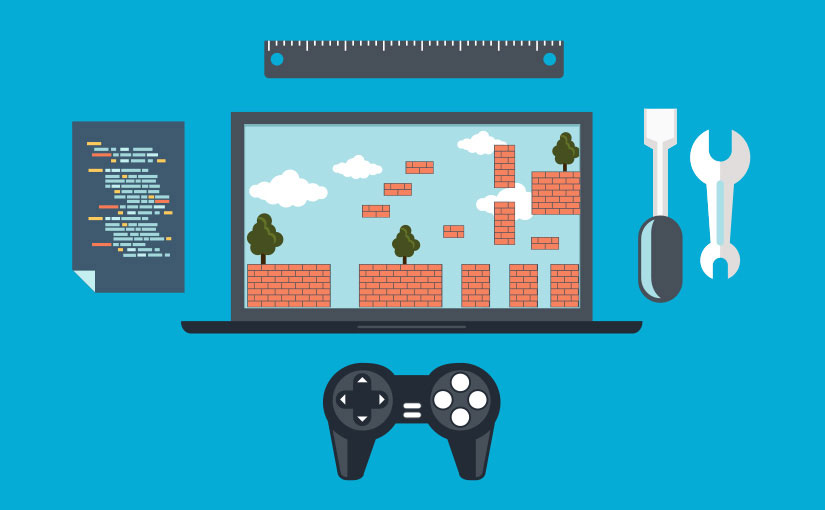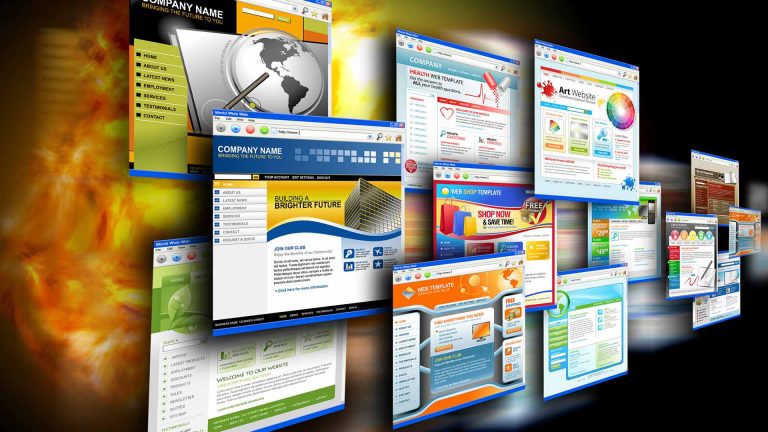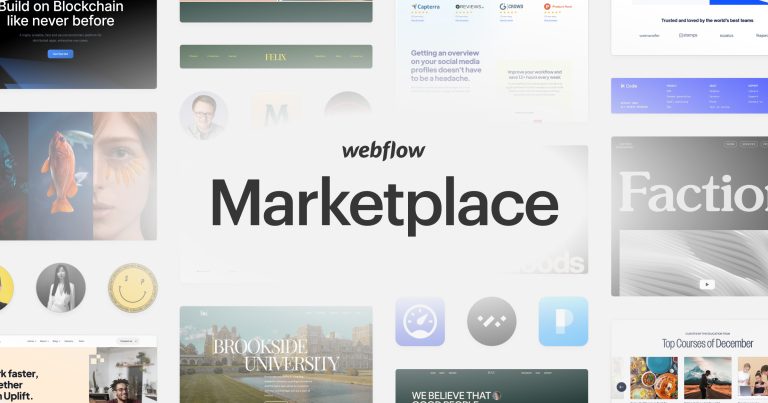Mastering Enterprise Game Development Software
Forget Candy Crush, this is enterprise gaming. Imagine crafting a training simulation so immersive it rewires employee behavior, or a marketing experience that transports customers to a virtual world of your brand. That’s the power of enterprise game development software. However, with a vast array of options, which engine is the perfect fit? Dive into “Mastering Enterprise Game Development Software” and unlock the secrets to building high-impact, ROI-generating games that revolutionize your business. From industry giants like Unity to cutting-edge VR tools, this guide equips you to select the software that propels your project to success.
What Makes Enterprise Game Development Software Different?
Forget the mobile puzzlers and casual shooters. Enterprise game development software is a whole other beast, meticulously crafted to tackle real-world challenges. Here’s what separates it from consumer-grade software:
- Unmatched Power and Flexibility: Imagine crafting a training simulation so immersive it rewires employee behavior, or a marketing experience that transports customers to a virtual world of your brand. Enterprise software offers robust toolsets for building these complex experiences, unlike consumer-grade software with its limitations.
- Scalability for Large Teams: Building games for businesses often involves large development teams. Enterprise software addresses this by offering features like version control, which tracks changes and avoids conflicts when multiple people work on the same project. Collaboration tools ensure everyone stays on the same page, fostering a smooth workflow even with dozens of contributors.
- Cutting-Edge Features: Consumer-grade software might prioritize ease of use, but enterprise software prioritizes power. Gain access to advanced features like physics simulations for realistic movement, high-fidelity graphics for stunning visuals, and artificial intelligence (AI) integration to create characters that can learn and adapt. These features empower you to create games that push the boundaries of interactivity and engagement.
In short, enterprise game development software is a powerful toolkit designed for professional game developers building high-impact games that solve real-world business problems.
Why Gamify Your Business?
Imagine boosting employee engagement, revolutionizing training, and creating unforgettable marketing experiences – all through the power of games. Dive into the undeniable advantages of enterprise game development software:
- Soar in Engagement: Games leverage our love of challenge and reward, leading to much higher engagement than traditional training or marketing.
- Revolutionize Efficiency: Streamline complex processes and dramatically improve knowledge retention with interactive simulations and training.
- Scale Training Globally: Deliver consistent, high-quality training to a global workforce – everyone’s on the same page, regardless of location.
- Data-Driven Decisions: Gain valuable data on player behavior within your game, allowing you to refine your approach and measure effectiveness.
- Boost Brand Image: Showcase your company’s innovation and commitment to a positive user experience with cutting-edge, interactive games that leave a lasting impression.
Different types of enterprise game development software

The world of enterprise game development software is vast, offering specialized tools for every project. We’ll equip you with the knowledge to navigate this diverse landscape:
- 2D vs. 3D Engines: Pick the right engine for your project! Consider visual style, complexity, and target platforms when choosing between 2D’s simplicity or 3D’s immersive worlds.
- Genre-Specific Powerhouses: Explore genre-specific tools! From physics-driven racing engines to narrative-focused branching storyline builders, there’s a tool for every game type.
- Version Control Heroes: Keep your development smooth! Version control systems track changes, manage game versions, and enable seamless team collaboration.
Major Enterprise Game Development Software
Now that you’ve grasped the power of enterprise game development software, let’s delve into the gladiators of this arena – the major engines that fuel these groundbreaking projects. We’ll explore the heavy hitters, highlighting their strengths and weaknesses to help you choose the perfect weapon for your development needs:
- A. Unity: The Versatile Champion
- B. Unreal Engine: The King of Visual Majesty
- C. Beyond the Titans: Exploring Other Options
The Powerhouses in Your Arsenal
-
Unity: A versatile powerhouse, Unity is a popular choice for both 2D and 3D game development. Renowned for its ease of use, vast asset store full of pre-made content, and extensive community support, Unity allows you to create games for a wide range of platforms, from mobile and PC to consoles.
-
Unreal Engine: The go-to choice for AAA (high-budget) game development, Unreal Engine is known for its stunning visuals and powerful toolset. It boasts cutting-edge features like real-time ray tracing for hyper-realistic lighting and a robust physics engine for incredibly detailed simulations. While Unreal Engine has a steeper learning curve, it empowers you to create games that look and feel like Hollywood blockbusters.
-
Beyond the Titans: The landscape extends beyond these giants. We’ll explore other notable options like:
- Godot: A free and open-source engine gaining traction, Godot offers a robust 2D and 3D development environment with a user-friendly interface.
- Construct: Perfect for beginners and 2D game development, Construct utilizes a visual scripting system, allowing you to create games without extensive coding knowledge.
- GameMaker Studio 2: Another excellent choice for 2D development, GameMaker Studio 2 offers a drag-and-drop interface and built-in scripting language, making it accessible for both beginners and experienced developers.
In the coming sections, we’ll delve deeper into the functionalities of these engines, helping you choose the perfect tool for your project.
Choosing Your Champion
The landscape of enterprise game development software boasts a diverse range of options, each with its own strengths and ideal use cases. Here, we’ll introduce you to the heavyweights of the industry:
-
Unity: A juggernaut in the field, Unity is renowned for its user-friendliness and vast asset store, offering a plethora of pre-made models, animations, and sound effects to jumpstart your project. Its versatility allows for creating both 2D and 3D games, making it a popular choice for a wide range of genres and target platforms.
-
Unreal Engine: If cutting-edge visuals are your priority, Unreal Engine reigns supreme. A favorite among AAA game developers, it boasts unparalleled graphical fidelity and a powerful toolset for crafting breathtaking in-game experiences. However, its steeper learning curve makes it a better fit for studios with experienced programmers.
These are just two of the many contenders in the arena. We’ll explore other notable options like Godot, a free and open-source engine ideal for hobbyists and smaller studios, and Construct, a drag-and-drop engine perfect for creating 2D games with minimal coding knowledge. Ultimately, the choice depends on your specific project needs, team skillset, and budget.
Core Functionalities of Enterprise Game Development Software
Enterprise game development software goes beyond creating flashy graphics. It equips you with a comprehensive arsenal of tools to breathe life into your game design. Here’s a breakdown of the core functionalities you can expect:
Game Design and Development:
- Level Editing and Worldbuilding Tools: Sculpt immersive environments, craft intricate levels, and design engaging gameplay spaces using powerful level editors. These tools allow you to define terrain, place objects, and set the stage for your game’s narrative.
- Scripting and Programming Languages: Bring your game logic to life with robust scripting and programming languages. While some software offers visual scripting for beginners, experienced developers can leverage powerful code-based systems for ultimate control.
- Asset Creation and Management: Enterprise software empowers you to create or import stunning 3D models, animations, sound effects, and music. Many engines offer built-in asset creation tools for basic elements, while integration with external software allows for even greater creative freedom.
- Physics Simulation and Character Controllers: Make your game world feel real with physics simulations that govern movement, collisions, and object interactions. Advanced character controllers let you define how players interact with the environment and navigate your game world.
- User Interface (UI) Design and Development: Craft intuitive and visually appealing user interfaces (UIs) for menus, inventory systems, and in-game information displays. UI design tools allow you to create a seamless user experience that complements your game’s overall style.
Collaboration and Version Control:
Teamwork Made Easy:
- Built-in chat and project management keep your development team on the same page.
- Track tasks, deadlines, and progress updates for a smooth workflow.
Code Confidence:
- Version control lets you track changes, revert to older versions, and avoid conflicts when multiple developers work together.
Powerful Integrations:
- Many engines connect with external tools for animation, sound design, and more.
- This streamlines your workflow and lets you collaborate with other teams.
Selecting the Right Software for Your Needs

With a diverse arsenal of enterprise game development software at your disposal, selecting the perfect fit for your project can feel overwhelming. Fear not! This section equips you with a strategic framework to make an informed decision.
Factors to Consider
Before diving into specific software options, identify your project’s unique requirements. Here are key factors to consider:
- Project Scope and Complexity: Are you building a simple 2D mobile game or a sprawling 3D open world adventure? The complexity of your project will influence the engine’s horsepower you’ll need.
- Team Skillset: Evaluate your team’s programming experience and familiarity with different software. Some engines offer visual scripting for beginners, while others cater to experienced coders.
- Budget: Enterprise software can range from free and open-source options to subscription-based models. Determine your budget constraints and factor in potential licensing costs.
- Target Platforms: Where do you envision players experiencing your game? Consider compatibility with platforms like PC, mobile devices, consoles, or even VR headsets.
Evaluating Software Options
Armed with your project’s criteria, research and compare different software options. Many offer free trials or demos, allowing you to test-drive the features and assess their suitability. Here are some resources to get you started:
- Online Reviews and Comparisons: Explore user reviews and independent software comparisons to gain insights from experienced developers.
- Software Developer Websites: Most enterprise game engine developers offer detailed information on their features, pricing, and tutorials on their official websites.
Learning Resources
The learning curve for some enterprise software can be steep. Fortunately, a wealth of resources are available to equip you and your team:
- Official Documentation and Tutorials: Software developers often provide comprehensive documentation and tutorials to help you learn the engine’s functionalities.
- Online Communities and Forums: Connect with other developers through online communities and forums to share knowledge, troubleshoot challenges, and learn from each other’s experiences.
- Online Courses and Training: Consider investing in online courses or video tutorials specifically designed for the software you choose.
Best Practices for Enterprise Game Development
![]()
Taming the power of enterprise game development software unlocks the potential to craft impactful and engaging games. Here, we delve into best practices to ensure your project thrives:
Agile Development Methodologies
Traditional, linear development approaches can stifle creativity and hinder progress. Agile development methodologies, popular in software development, are perfectly suited for game creation. These methods emphasize:
- Iterative Development: Break down your project into smaller, manageable chunks called “sprints.” Each sprint focuses on specific features and allows for continuous iteration and feedback.
- Prioritization and Flexibility: Prioritize the most crucial features first and adapt your development plan based on ongoing testing and feedback.
- Team Collaboration: Foster open communication and regular collaboration within your team to ensure everyone is aligned with the project’s vision.
Effective Team Communication and Collaboration
A successful game development journey hinges on seamless communication and collaboration. Here are some key practices:
- Utilize Communication Tools: Leverage built-in communication features within your chosen software or external tools like Slack or project management platforms to facilitate real-time communication.
- Schedule Regular Team Meetings: Regular team meetings keep everyone informed of progress, address challenges, and foster brainstorming sessions to keep creativity flowing.
- Establish Clear Roles and Responsibilities: Clearly define roles and responsibilities for each team member to avoid confusion and ensure ownership of specific tasks.
Establishing a Sustainable Development Pipeline
A well-defined development pipeline streamlines your workflow and ensures efficient game creation. Here’s how to establish one:
- Define Development Stages: Break down your project into distinct stages like pre-production, development, testing, and deployment.
- Version Control and Asset Management: Utilize version control systems to track changes and manage assets effectively, avoiding conflicts and ensuring everyone has access to the latest versions.
- Automation Wherever Possible: Automate repetitive tasks like asset building or testing processes whenever possible to free up your team’s time for creative endeavors.
Testing and Quality Assurance (QA) Procedures
Rigorous testing is paramount for creating a polished and enjoyable game experience. Here are some essential QA practices:
- Internal Testing: Throughout development, conduct regular internal testing to identify bugs and glitches, ensuring a smooth gameplay experience.
- User Testing: Gather feedback from external user testers to gauge player experience, identify areas for improvement, and refine your game’s balance and mechanics.
- Iterate and Refine: Based on testing feedback, iterate on your game design and features to deliver the best possible experience for your target audience.
Conclusion
Forget the casual mobile games – enterprise game development software is a strategic weapon for businesses, and ONextDigital is your key to building a digital empire. We offer white label software services, allowing you to leverage our expertise to craft custom game engines tailored to your specific business needs.
Imagine transforming your employee training into an immersive RPG adventure that boosts engagement and knowledge retention. Revolutionize your marketing campaigns with interactive experiences that transport customers to a virtual world of your brand. Create lasting customer experiences with engaging games that showcase your products and services in a fun and memorable way.
Let’s craft a game that propels your business to victory. Partner with ONextDigital and unlock the potential of enterprise game development. With our expertise and your vision, we’ll turn those casual game mechanics into powerful tools to dominate your market and build a thriving business empire. Contact us today.




